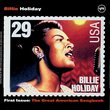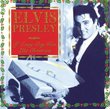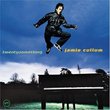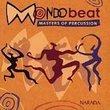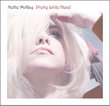| All Artists: Machito & His Afro-Cuban Orchestra Title: Mambo Mucho Mambo: The Complete Columbia Masters Members Wishing: 2 Total Copies: 0 Label: Sony Release Date: 7/23/2002 Genres: International Music, Jazz, Latin Music Styles: Caribbean & Cuba, Cuba, Mambo, Jazz Fusion, Latin Jazz Number of Discs: 1 SwapaCD Credits: 1 UPCs: 074646209721, 5099750867020 |
Search - Machito & His Afro-Cuban Orchestra :: Mambo Mucho Mambo: The Complete Columbia Masters
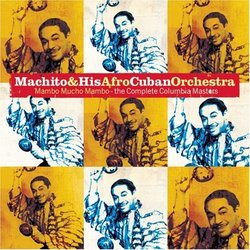 | Machito & His Afro-Cuban Orchestra Mambo Mucho Mambo: The Complete Columbia Masters Genres: International Music, Jazz, Latin Music
Havana-born bandleader-singer Frank Raul Grillo, a.k.a. Machito (or simply Macho), may not have achieved the same level of mass appeal as Xavier Cugat (for whom he played and sang in the '30s), but his fusion of Africa... more » |
Larger Image |
CD DetailsSynopsis
Amazon.com Havana-born bandleader-singer Frank Raul Grillo, a.k.a. Machito (or simply Macho), may not have achieved the same level of mass appeal as Xavier Cugat (for whom he played and sang in the '30s), but his fusion of African and Latin rhythms with the improvisational bent of New York's postwar bebop scene would have a huge and lasting impact on Latin music. The 20 tracks gathered here date to the early and mid '50s, an era that saw Machito's musical peak and the exploding popularity of Latin rhythms neatly coincide. Partnered with his classically trained brother-in-law Mario Bauza, Macho and his band bounded through swinging, jazzed- up takes on "Sambia," the staple "Adios," and the de facto mambo anthem "Mambo Inn"; harmonized with the Skylarks on a vocal tribute to the Savoy Ballroom ("Mambo à la Savoy"); engaged in some saucy sexual innuendo with Graciela on the live high jinks of "Si Si, No No"; and even made room for Columbia A&R man Mitch Miller's oboe on the aptly named "Oboe Mambo." With its infectious Latin rhythms and loose-limbed bebop and swing seasonings, this music has a remarkable contemporary resonance that eclipses transient lounge revivalism; small wonder many Latin musicians hail Machito as "the Godfather." --Jerry McCulley Similarly Requested CDs
|
CD ReviewsThis is where Afro Cuban Jazz begins COMPUTERJAZZMAN | Cliffside Park, New Jersey United States | 08/24/2005 (4 out of 5 stars) "but I can't give this CD five stars because there are too many slow numbers, would have preferred to hear all uptempo numbers, but that is my personal bias. But the ones that are here are great! These recordings are all from the 50's when the Machito Orchestra really had it nailed down." Machito Leonardo J. Gonzalez | Eagle point, OR | 03/05/2006 (4 out of 5 stars) "The CD is very good , but lacks some of machito's songs that made him famous."
|

 Track Listings (20) - Disc #1
Track Listings (20) - Disc #1